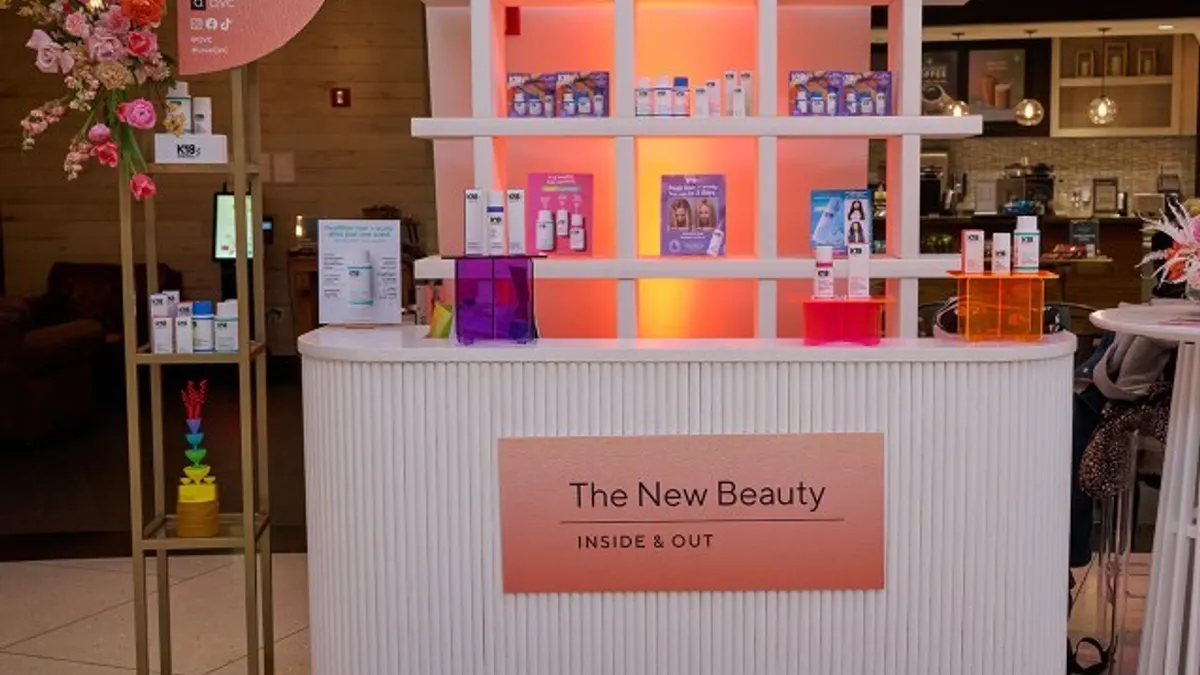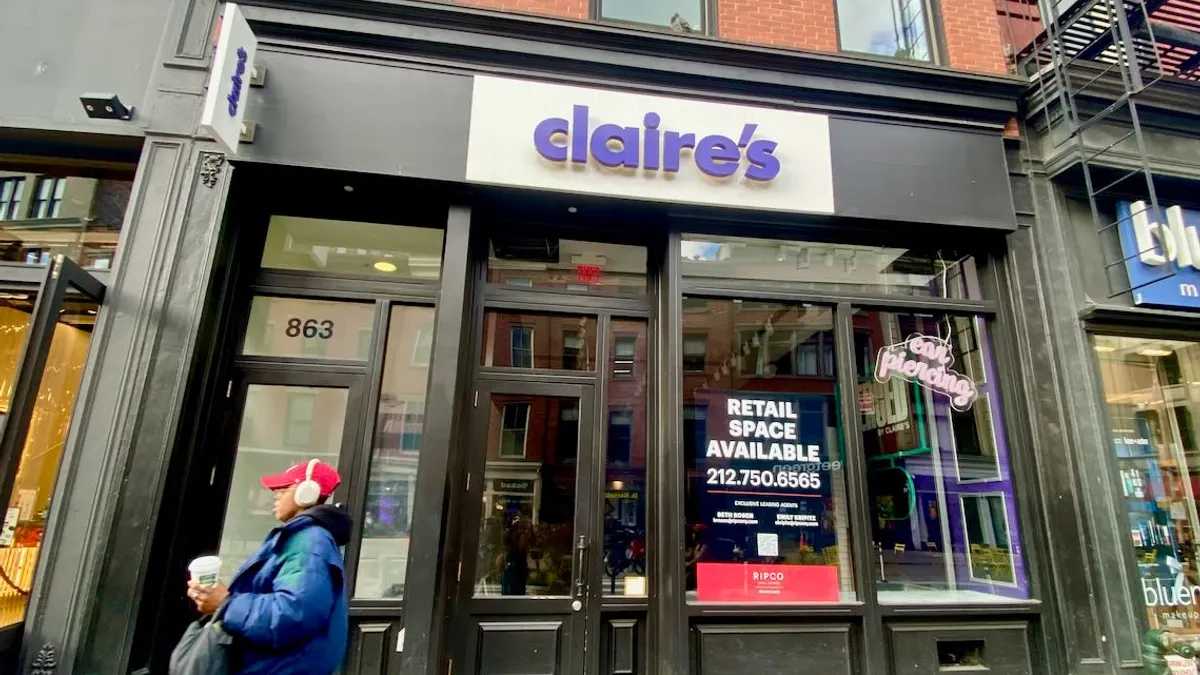After failing to spin off Victoria's Secret from sibling brand Bath & Body Works by selling a majority stake to private equity firm Sycamore Partners, L Brands has swiftly pivoted to turning around its lingerie business on its own.
The brand, already grappling with falling sales, profits and market share, recently met yet more obstacles in the way of that goal. The COVID-19 pandemic forced stores to close for much of the quarter (one reason Sycamore gave for backing out of its agreement to purchase a 55% stake for about $525 million). Last week, a shareholder, impatient with the company's response to his request for information about what he called a toxic work environment, filed a lawsuit, and the brand's U.K. arm filed the equivalent of Chapter 11 in the United Kingdom.
The brand's overseas trouble is viewed much the same way by analysts there as it is in the U.S. — as bringing on its own downfall. The company for too long ignored an increasingly pressing need for changes in both operations and marketing, specifically running too many brick-and-mortar stores, and sticking with a highly sexualized approach increasingly out of favor.
"Despite being a desirable yet expensive underwear brand when it launched in the UK in 2012, Victoria's [Secret] has since lost its appeal for many shoppers due to a lack of inclusivity," Sofie Willmott, lead retail analyst at GlobalData in the U.K., said in emailed comments. "Its famous catwalk show was cancelled last year after much debate but for many of its target customer base, it was too little too late and they had already gone elsewhere."
The pivot
That echoes plenty of analysis Stateside in recent years.
While the Sycamore merger is off, the company said that the spinoff plans remain — the end of an era for L Brands founder Les Wexner, who stepped down as CEO last month. He left the role with his signature lingerie brand faltering and his reputation marred by his close relationship with disgraced financier and convicted sex offender Jeffrey Epstein, whose death in prison last year was ruled a suicide.
That murky relationship (for which Wexner has professed both regret and lack of knowledge regarding details) showed up in last week's lawsuit filed by John Giarratano, who owns "approximately 216 shares of L Brands stock" and in February demanded the company provide documents related to its oversight of Victoria's Secret. According to court documents emailed to Retail Dive by his attorneys, he is investigating what he called a "deeply entrenched and toxic culture" that he said was known and "apparently condoned by senior executives, including Leslie Wexner, founder, CEO and Chairman of L Brands and his close ally, Edward Razek, former Chief Marketing Officer of L Brands, and created a hostile work environment."
L Brands and Victoria's Secret didn't immediately return Retail Dive's request for comment on the lawsuit.
As Giarratano notes, Razek left the company last year. Several analysts hailed that move, even as they continued to push the brand to move more quickly to address changing demand. Its slow pace of change left it especially vulnerable when the pandemic forced stores to close, several warned last month. "[T]he COVID-19 forced Vicky to scramble for survival," Wedbush analysts led by Jen Redding said in emailed comments regarding the most recent quarter, adding that, on top of its operating woes, Wedbush research shows that "inventory continues to pile up in" the second quarter.
Still a giant
There's no doubt that Victoria's Secret has been sliding from a once comfortable perch.
In the last five years, its compound annual growth rate declined by 49.5%, from operating income of $1.5 billion in 2015 to $95 million in 2019. Meanwhile, L Brand's personal care business saw operating income rise at a compound annual growth rate of 9.1%, from operating income of $797 million to $1.1 billion over the same period, according to documents filed with the Securities and Exchange Commission in February.
Victoria's Secret is not exactly overshadowed by Bath & Body Works, however, considering that it notched $6.8 billion in net sales last year in North America alone, compared to $5.2 billion at the personal care brand.
"[W]e believe VS, one of the largest brands in history (and yet likely losing money), is underappreciated," BMO Capital Markets Managing Director Simeon Siegel said in emailed comments Friday.
While the marketing — which seemed increasingly left behind by brands like Aerie and online pure plays that eschewed altered images, offered more sizes and emphasized comfort — is widely blamed for the brand's decline, Siegel believes that is over-emphasized, considering that Victoria's Secret sells plenty of lingerie.
"Their reputation hasn't stopped that. But to sell that much and lose money suggests they are underearning by overselling," he told Retail Dive in an email. "Sell less, raise the pricepoints on the remaining revenues."
The company's bankruptcy action in the U.K. signals that real and much-needed change at the brand is afoot, made possible in part by the pandemic, which is serving to accelerate several existing trends in retail, he also said.
Since the merger breakdown, L Brands has wasted little time in taking back control of the turnaround. Last month, the company said it will close 250 Victoria's Secret stores in North America over the next few months.
"Shedding the pieces that aren't value-added is a hard thing to do normally," Siegel said. "The pandemic changes that. They don't need to pivot. Sell less lingerie at better margins and that's a win."






















